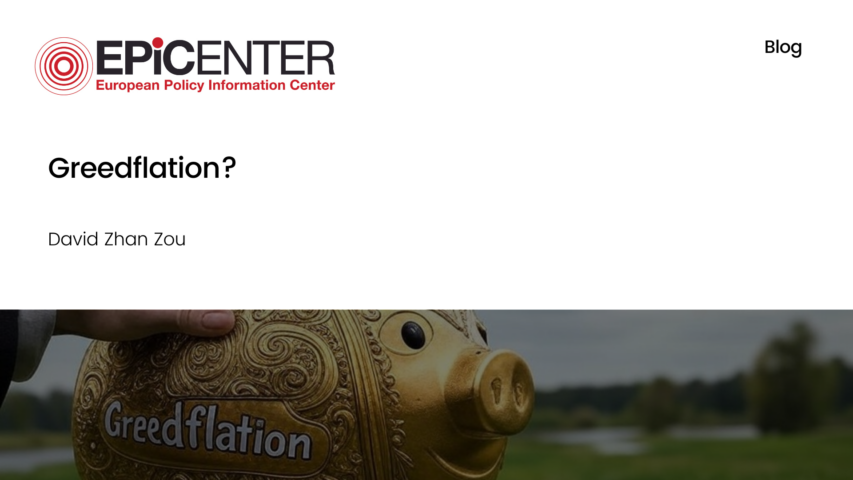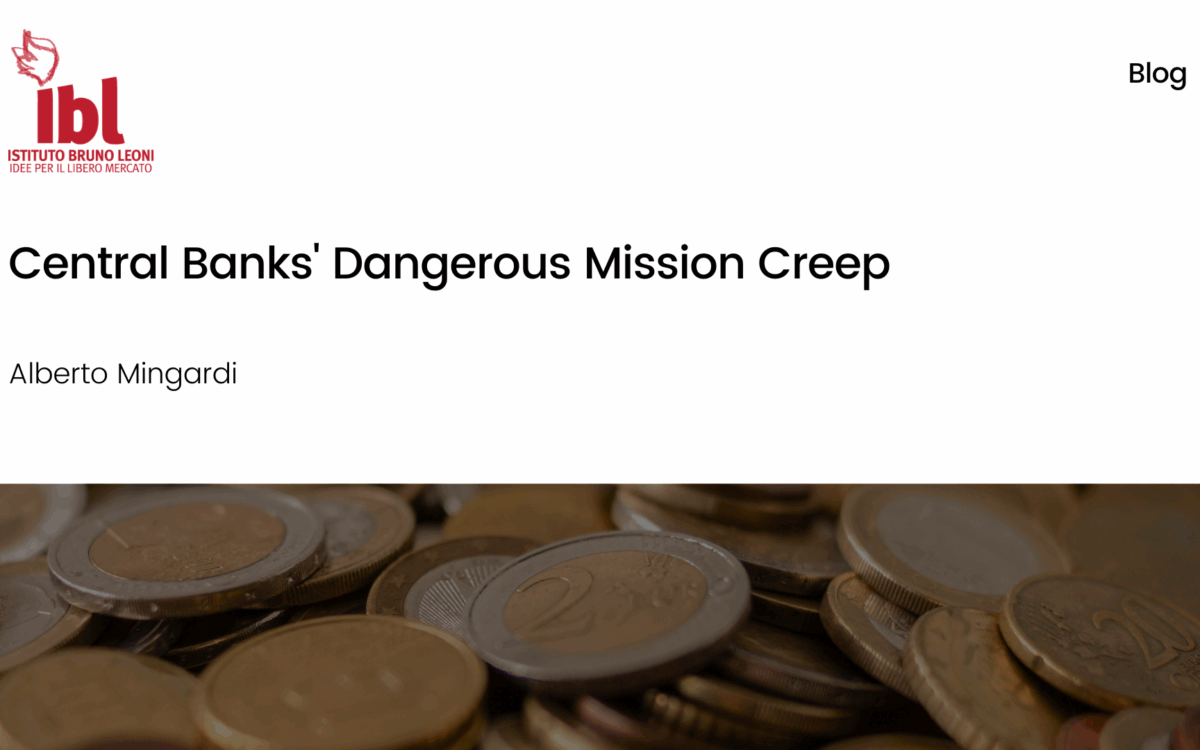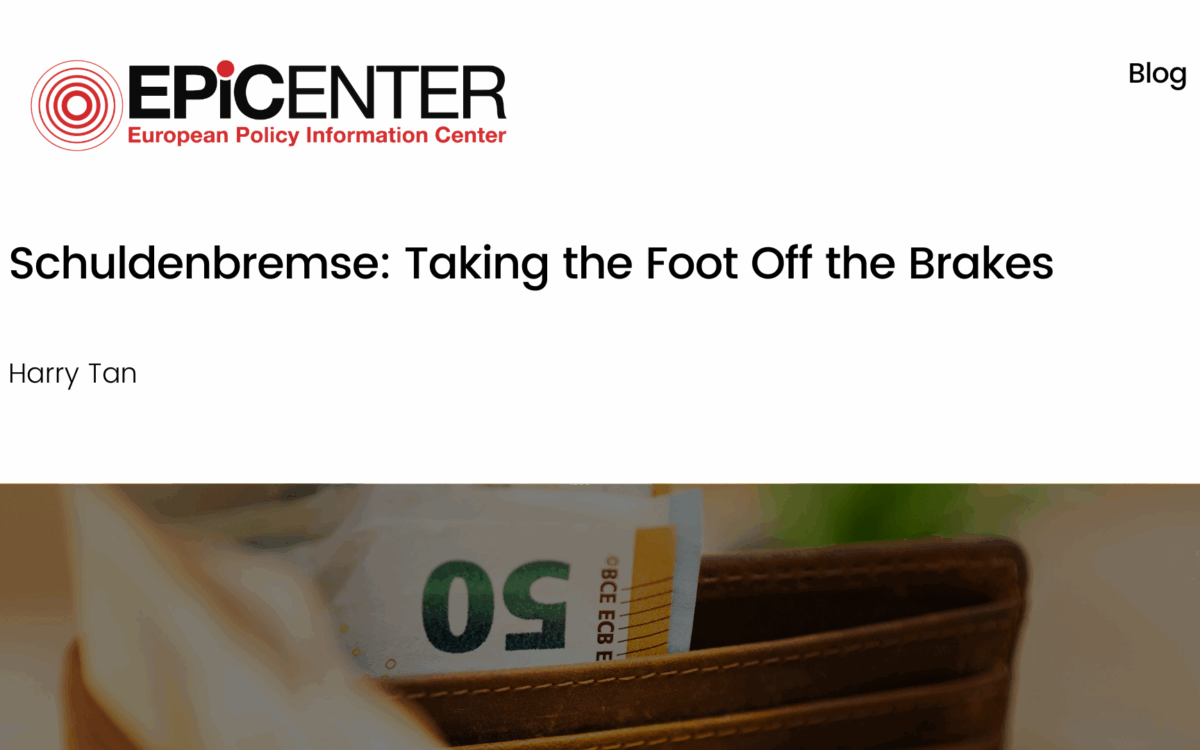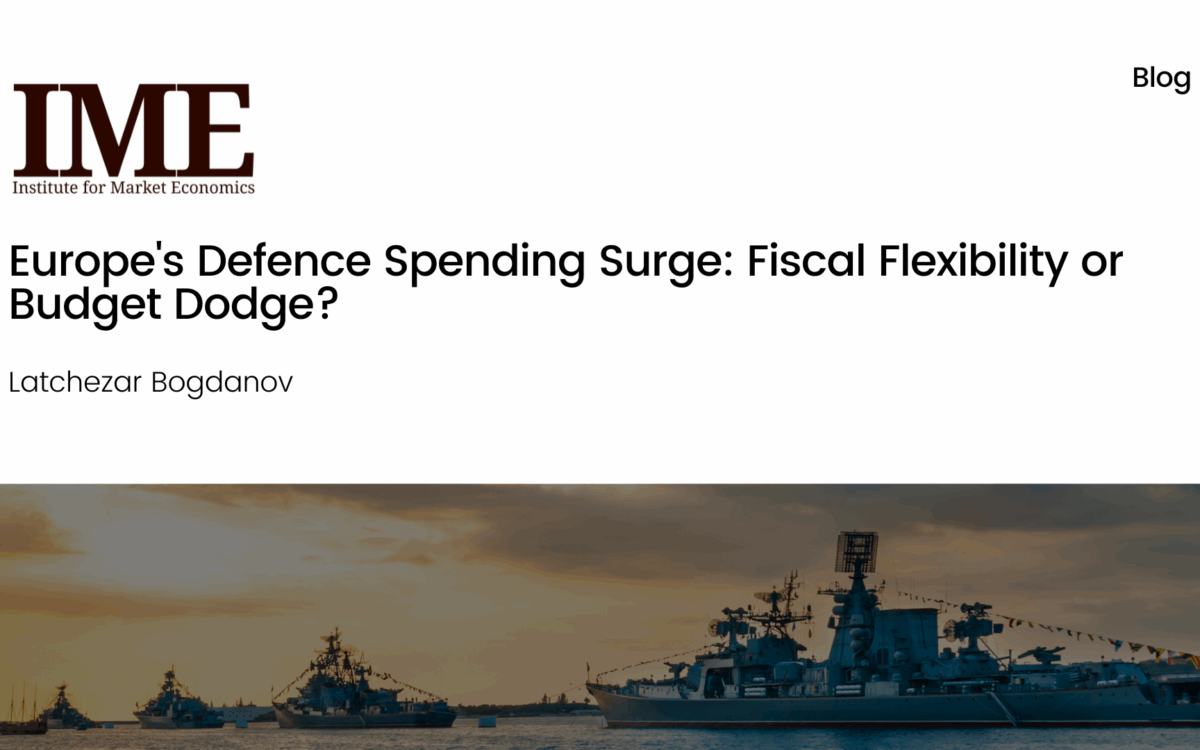Greedflation?

Greedflation?
David Zhan Zou // 19 July 2023
The last three years have brought many old ghosts to Europe. The COVID-19 pandemic was the biggest health crisis since the Spanish flu, wars have erupted again on European soil after decades of peace, and inflation, a long-gone foe for the bureaucrats in the European Central Bank, has struck again. Today, rapidly rising price levels are one of the biggest worries for many European citizens, as most households have not seen their paychecks catch up with the rapidly rising cost of living.
In determining the culprit for rising inflation, fingers point in multiple directions – at our policymakers, supply bottlenecks, the war in Ukraine, and, more recently, corporate greed. Though the extent to which each has caused inflation is still a matter of debate, there is a general consensus among economists that the former three are key ingredients in the deadly cocktail fuelling the flame of inflation. Nonetheless, the latter, though mentioned in the economic literature, seems far more popular among politicians, especially on the left side of the political spectrum.
The idea that bloated corporate profits drive prices up is not novel. Economic literature introduced the concept of “markup shocks” in macroeconomic models long ago. This proposition suggests that firms with greater market power can increase their profits by raising prices. When this becomes a general trend in the economy, the gap between consumer prices and production costs widens. This deviation from basic supply and demand models occurs because most markets involve not only price-taking firms but also at least one price-maker, with a few exceptions such as commodity markets.
A recent paper assessing markup shocks during the pandemic years concluded that the “US COVID-19 inflation is predominantly a sellers’ inflation that results from […] the ability of firms with market power to raise prices”. The unconventional reasoning behind this judgment is that incumbent firms are hesitant to lower prices as price wars entail risks, which are typically borne by new entrants. Consequently, many sectors have price leaders who implicitly establish the general price trajectory within the market. Restricted access to inputs due to supply bottlenecks during the pandemic significantly reduced the risk of competition from firms within the same sector and new entrants, thereby amplifying this power dynamic and granting certain firms windfall market power. Many politicians and members of the media have seized this opportunity to criticize business owners for their greedy and anti-competitive practices, accusing them of inflating their profits at the expense of consumers during tumultuous times.
Similarly, an inflammatory tweet from the International Monetary Fund (IMF) stating that “Rising corporate profits were the largest contributor to Europe’s inflation over the past two years” has gained widespread attention. The tweet cited a paper that examines trends in imported costs, corporate profits, and wages during this period of high inflation. Supporters of the “greedflation” argument were delighted. They saw this as mainstream economics finally acknowledging that inflation is being caused by the avaricious and unscrupulous capitalist class.
The issue with greedflation is not that it is implausible, but rather that its discourse serves as a clear example of scapegoating and manipulation of empirical evidence. In reality, neither of the articles truly support the perspective of greedflation. The first article utilises microdata from 18 large public firms (such as Coca-Cola, P&G, ExxonMobil, etc.), which the authors acknowledge may not be representative of most firms. Additionally, the paper presents mathematical evidence focusing solely on profits and wages, disregarding other potential underlying causes that could explain changes in wages and profits. While the evidence is sufficient to establish the outcome, namely that profits have increased more than wages, this does not necessarily imply that this is due to increased market power, as alternative explanations have been proposed in other studies. For example, this paper models the increase in corporate profits through changes in relative prices of other business inputs, such as energy and labour.
Similarly, the second article does not attempt to explain the sources of inflation but rather examines the manner in which it has materialised. Consequently, it never argues that corporate profits have directly caused inflation. Furthermore, even if causal analysis was provided, the paper explicitly rejects the notion that European corporate profit margins have significantly increased. In other words, while nominal profits have grown, they have done so proportionally to prices. In short, the individual who wrote the tweet clearly misunderstood the paper or deliberately crafted a misleading headline to generate media attention.
My objection to greedflation is not about the concept itself, let alone the cited papers. My concern lies with the dangers of misdiagnosing the sources of inflation. Promoting the greedflation agenda can incentivize counterproductive policies that further exacerbate inefficiencies in the economy, as abnormal concentrations of market power warrant intervention, sometimes even in pricing. Greedflation advocates are akin to doctors prescribing antibiotics on every visit, despite the absence of infection, causing more harm with each diagnosis.
Furthermore, greedflation’s rhetoric is also problematic. Attributing inflation to corporate greed is as fallacious as attributing deflation to corporate solidarity. Greedflation advocates seem to forget that, for firms to be able to increase prices and profits simultaneously, consumers must continue purchasing their goods and services. Given that wages have lost purchasing power, how could consumption increase so much since the reopening of the economy? Though, at that time, expansive fiscal and monetary policy were well justified, generous stimulus packages and virtually free borrowing are sensible reasons that explain why households were able to absorb the price hikes. Therefore, the problem of inflation is not alien to governments and central banks. Attacking business owners for every problem in the world poses a clear moral hazard, discouraging entrepreneurship and signaling to politicians and bureaucrats that they can always transfer their blame and fault to evil businesses. In other words, if we burn the witch, we must make sure we burn the right one.
Download or share this blog post
EPICENTER publications and contributions from our member think tanks are designed to promote the discussion of economic issues and the role of markets in solving economic and social problems. As with all EPICENTER publications, the views expressed here are those of the author and not EPICENTER or its member think tanks (which have no corporate view).



